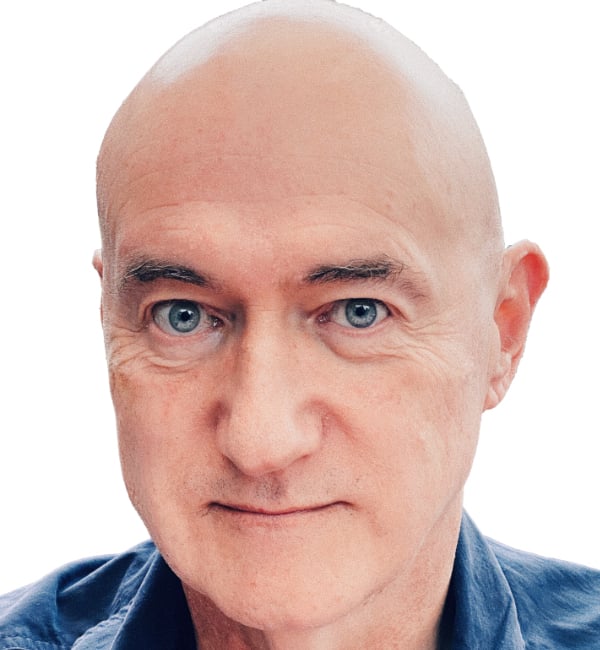
Can you trust scientists? Is there a better path to the truth than science? (Hint: Yes, you can; and no, there isn't).
I've followed science all my life. My dad was a scientist (a metallurgist). I have an honours degree in Philosophy and part of that involved studying Scientific Method. Ever since then, I've read about science. I've been a CTO and a professional writer and communicator in the field of technology for over thirty years. Most of modern life depends on science and scientific discoveries. I wouldn't be alive if it weren't for science. If you can't trust scientists, that iPhone you're doomscrolling on is a banana.
Science is under attack all over the world. Everyone from alternative health practitioners to politicians seem ready to vilify scientists. Ad hominem criticism of individuals in the scientific community is rife. It's all based on a fundamental mistake: science is not a person - it's a self-correcting, open and transparent methodology that admits to errors, fixes them, and in doing so, strengthens our global repository of knowledge. So even if all scientists are corrupt (I should hardly have to add that they're not), science itself isn't. To claim that it is, is tantamount to saying that triangles are corrupt squares. To put it in unambiguous philosophical terms, science is not the sort of thing that can be corrupt. It isn't by definition.
The scientific method
Amazingly, while schools have science lessons, these rarely focus on what science is. After five years of studying science at school, you could still come away with the idea that science is doing experiments and a bunch of formulae. Sure, you will have been practising the scientific method while doing those experiments, but it's unlikely you'll have spent any time studying the scientific method itself.
You may be surprised that the scientific method is the fundamental component of paradigm change. "Paradigm" is overused. I do it myself. It has both a colloquial form and a formal one. In everyday language, it means "a big change". In science, it means a lot more. There are whole books about it, including the seminal one: The Structure of Scientific Revolutions by Thomas Kuhn. We’ll come back to paradigm change later.
First, let's look at formal science. We're probably familiar with all the words here, but perhaps not their scientific use.
Science starts with evidence. You could quite easily phone the newspapers with your story that you've invented a levitating cheese sandwich. You might be quite specific about the details.
"We first noticed it when we put smoky barbeque sauce on a gorgonzola sandwich. Critically, the humidity was 96%, and the temperature was 34º Celsius. We sent a collimated infra-red beam towards the sandwich, which started to levitate, reaching a height of 27mm above the kitchen table".
You would justifiably expect scepticism about this claim. But let's assume it is a genuine enough report from reputable researchers.
But extraordinary claims require extraordinary evidence (said Carl Sagan). And science is designed to tend towards the truth. If there isn't enough evidence, you have to make some by asking other scientists to replicate the original experiment in identical conditions. If other scientists succeed in replicating the results, even that isn't the end of it. In the case of the levitating sandwich, is there some different effect at work that makes it look like it's levitating? Maybe it's on a plate made of highly refractive material - that's a material that changes the path of light rays passing through it. Looking from above would solve that. It is the job of science to continue to experiment until the results are so robust that they're beyond doubt.
"Beyond doubt" is not an opinion. It's not a judgement. It's the outcome of a documented series of replicable experiments showing unambiguously that the only possible explanation for the sandwich's levitational properties is intrinsic to the sandwich and its composition and specific circumstances.
The point about replicating results is that if the initial experiment was either fraudulent - or poorly done - other scientists trying to replicate it would quickly find out and declare their (lack of) results. So, if, for example, the sandwich was only levitating courtesy of an invisible thread, no one else's experiment would have displayed the floating phenomenon.
The superconductor hunt

Replicating LK-99's ability to levitate has become a modern day hunting of the snark
Intriguingly, Twitter (or eX-Twitter) is currently on fire with excitement about a new form of superconductor, LK-99. We’ll talk about superconducting in a future article, alongside quantum computing and other seismic breakthroughs. But for now, almost minute by minute, enthusiasts are holding their breath for confirmation of a room-temperature superconductor. In real-time, we are witnessing the scientific process as groups around the world try to replicate potentially life-changing results. [And as of 11 August, they have yet to succeed. It seems that LK-99 might have some interesting magnetic properties, but not actually be a superconductor. Ed]
For science to be meaningful, it must also be testable. The statement "83% of pink unicorns prefer raspberry milkshake to banana" isn't meaningful. It's neither true nor false because it's not meaningful. How would you test that when there aren't any unicorns? Many pseudo-scientific statements are flawed in the same way. Typically they are built on a platform of untestable assumptions. Because their internal reasoning seems sound, it's easy to miss that the argument’s foundations are built on thin air.
It's also easy to get distracted by the apparent logical form of a statement when the reality is that it is different to what it seems prima facie. What about this? "The present King of France is bald". Is that statement true or false? Most people would say, hesitantly, that it's false on the grounds that there isn't a present King of France. But you could equally argue that if it's false, then the present King of France must have a bushy head of hair.
The real explanation is that the sentence sounds like it's "A is B", like "The grass is green", but it's a more complicated structure than that. It's "There exists at least one or more people, and one of those is male, bald and the king of France". All of those assertions have to be true for the statement as a whole to be true. As it turns out, there are people in the world. Some are male, some are bald, but none is the King of France.
The problem is that iff they hear something often enough, some people will start to believe it's true. It's called "Truth by Repeated Assertion". And if the person saying it is a figure of authority, it adds still more weight. But it doesn't make it true, however often you say it, no matter who says it.
Scientific progress is not linear. It's not a smooth progression. It relies on breakthroughs, and no law of the universe says these have to occur at regular intervals and be of similar magnitude. We should expect irregularity and unpredictability. If science were utterly linear, it probably wouldn't be science.
Paradigm change
Sometimes, an experiment or observation contradicts known science. If enough scientists verify the anomalous result, and that leads to more unexpected data in other fields, then it starts to make the existing science books look wrong.
These are symptoms of paradigm change. A paradigm in scientific terms is "the establishment". It's what's taught in schools, what's in the textbooks, and the set of theories and principles that guide research, engineering, chemistry and by derivation, almost everything we do in response to the real world.
The 16th-century Copernican revolution challenged the incumbent paradigm that the sun revolved around the Earth. Observations didn't support this but were consistent with the new heliocentric model, where the planets orbit the sun.
In the 19th century, Darwin's theory of evolution proposed that life forms best adapted to survival will be most likely to breed and pass on those characteristics to their offspring, eventually forming new species. The theory of evolution has itself evolved to include genetic evolution and other theories consistent with the evidence. The previous paradigm supported creationism and phenomena like the spontaneous generation of life directly into what we would today call evolved forms.
In the 20th century, Einstein developed the theory of relativity, which supersedes Newtonian physics. Luckily, we can continue using the vastly more intuitive Newtonian laws of motion as long as we don't start moving anywhere near the speed of light.
Also, in the 20th century, Quantum Physics burst onto the scene. It shed new and important light on physics and chemistry and is crucial to the relatively new discipline of quantum computing. Fortunately, again, we can stick with the more intuitive previous paradigm for everyday use while acknowledging that it is superseded for precise explanations.
"Evolution is just a theory" is a common complaint amongst dissenters. But that's the point. Everything in science is a theory, and that's why it is so robust. It's a theory because it is prepared to correct itself. Some theories are so strong, so supported by abundant and bullet-proof evidence accumulated over centuries, that it is reasonable to say, within a scientific context, that they are also true.
You can't dismiss science without dismissing evidence. And if evidence doesn't count, then we are in deep trouble.
Tags: Technology


Comments